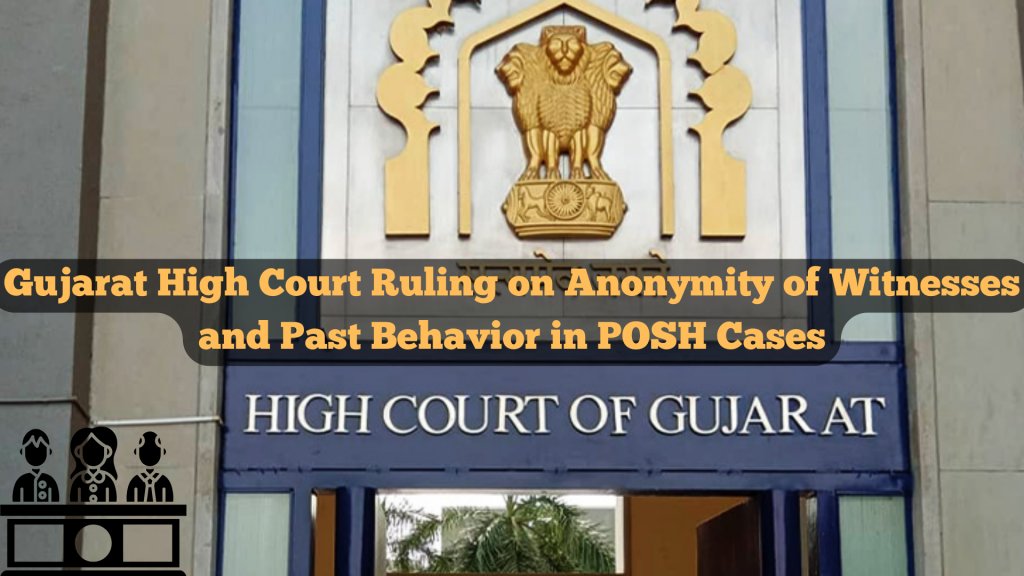
Gujarat High Court Ruling on Anonymity of Witnesses and Past Behavior in POSH Cases
Judgement Given On : 19/04/2022
In the case of Vimalkant Bhanuprasad Shrimali vs. IDMC Limited, the Gujarat High Court has issued a significant ruling regarding the application of the Sexual Harassment of Women at Workplace (Prevention, Prohibition & Redressal) Act, 2013 (POSH Act). The court’s verdict establishes key principles:
Case Background:
The petitioner, an Assistant Vice President of HR and Administration at IDMC Limited (“Respondent 1”), faced a sexual harassment complaint under the POSH Act. After an inquiry, the petitioner’s services were terminated based on the inquiry report’s findings, and this decision was upheld on appeal.
POSH Act Provisions Supersede Disciplinary Rules:
The petitioner argued that the company’s disciplinary rules (Rule 29 of the IDMC Disciplinary Rules) were not followed in the departmental inquiry. The court referenced Section 11 of the POSH Act, stating that the Internal Committee (IC) must conduct inquiries in accordance with the service rules applicable to the respondent. Rule 5.2 of the IDMC Limited’s Conduct, Discipline, and Appeal Rules, 2019, clarified that in cases of sexual harassment, the IC would be the inquiry authority. The court emphasized that, in such cases, procedural requirements under disciplinary rules could be dispensed with in favor of the POSH Act.
Verbal Cross-Examination Not Mandatory:
The petitioner contended that verbal cross-examination was not allowed, as he was asked to submit written questions for cross-examination. The court explained that the POSH Act permits written questions for cross-examination, particularly when the complainant and the accused work in the same organization. Verbal cross-examination, in such cases, may create stress and discomfort for witnesses and the complainant, affecting their ability to provide truthful testimony. The petitioner’s failure to cooperate by not responding to the questionnaire was noted.
The court referred to previous judgments and recognized that written questions could effectively serve the purpose of cross-examination without compromising the anonymity and comfort of witnesses.
Consideration of Past Records of Sexual Harassment:
The complainant raised concerns about the petitioner’s previous employment at M/s. Jubilant Pharmaceuticals in 2017, where feedback about allegations of sexual harassment was received. The court noted that the POSH Act places the responsibility on employers to ensure a harmonious and safe working environment. The complaint’s content indicated that the petitioner’s behavior fell within the definition of sexual harassment. Therefore, the respondent-employer was obliged not to retain an employee with a history of such conduct, as it had led to the petitioner’s resignation from a previous job due to similar behavior.
In summary, the Gujarat High Court’s ruling in this case establishes that the POSH Act provisions take precedence over disciplinary rules, written cross-examination can be valid, and past records of sexual harassment are admissible for considering the behavior of the accused. This judgment underscores the importance of adhering to the POSH Act’s provisions and maintaining a safe working environment.
